- What is an interview?
- What are the Types of Interviews?
- Types of Interview: By Structure
- Mode of Interview
- Types of Interview: By Purpose
- Other Common Types of Interview
- Tips for preparing for different types of interviews
- Frequently Asked Questions
Types Of Interview: Most-Common Formats & Tips To Ace Them
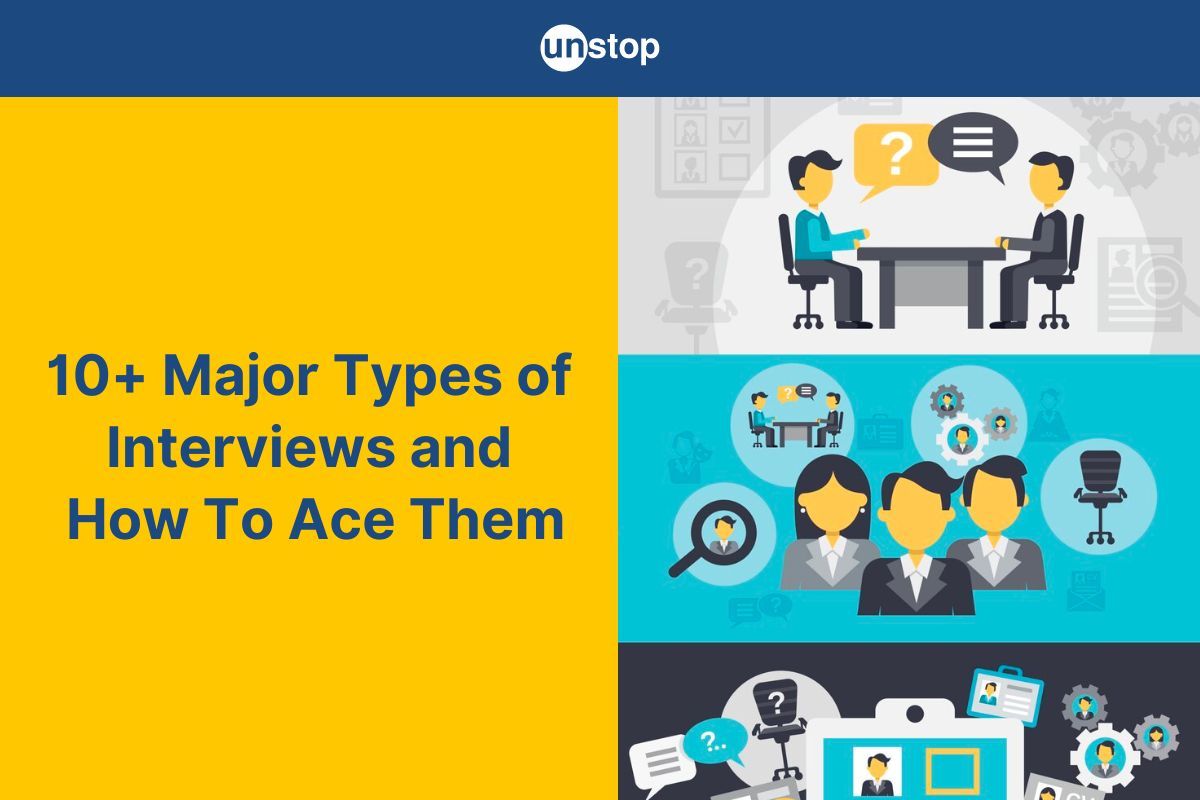
You may encounter different types of interviews as you progress through your career. When you seek better opportunities in reputed companies, interviews become more and more complicated. Interviews are used by employers to get to know more details about you and your qualifications. Their interview style may differ from company to company. Often, different companies have a varied number of interview rounds as well. Knowing the different types of interviews and interview techniques helps you best prepare for a range of interview scenarios.
In this article, we will provide a glimpse into different types of interviews. So, when you apply for different companies, their interview process will not be daunting for you!
What is an interview?
Before we begin to understand different types of interview methods, let's first understand what is an interview.
Broadly, an interview can be defined as a conversation or formal meeting between two individuals, where one person (interviewer) consistently asks the question and the other (interviewee) answers. It’s usually conducted face-to-face but it could also take place over the phone, online, or in writing.
While interviews can be conducted for promotions, information, and even networking, the most commonly known interview is a job interview. In these types of interviews, the interviewer will ask questions to determine if the candidate has the skills needed for the job role and whether they want to continue with the process.

What are the Types of Interviews?
The section below will discuss the various types of interviews and provide tips for how you can crack them.
There are broadly three kinds of interviews or rather three categories in which you can divide the various types of interviews:
- Divided by Structure: Interview structure refers to the format and organization of questions and interactions between the interviewer and interviewee during the interview process.
- Divided by Mode: Interview mode refers to the method or format used to conduct an interview.
- Divided by Purpose: Interview purpose refers to the reason or goal behind conducting the interview.
Important: There can also be an overlap among different categories of interview types. Take for example a traditional interview for a job. This is an interview type categorized by purpose but can be conducted over a phone, video, or in person (interview types categorized by mode).
The traditional form of interviews
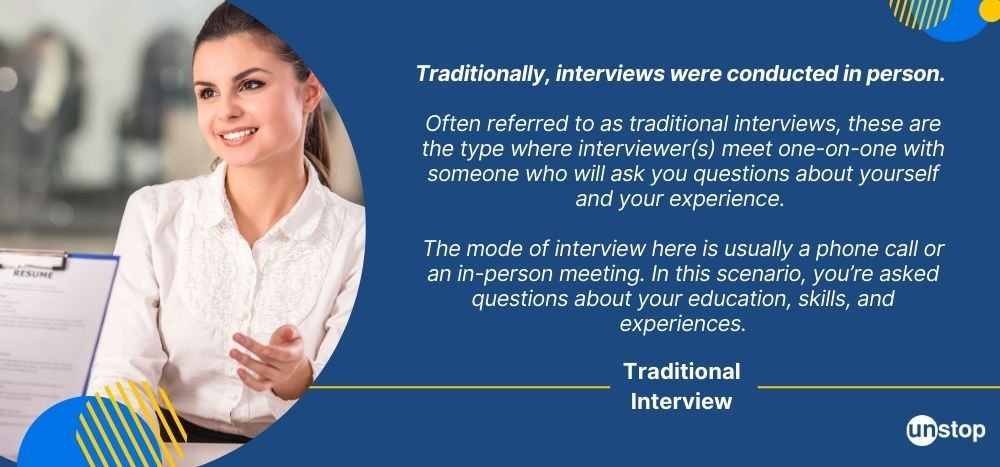
Let’s now study the different types of interviews.
Types of Interview: By Structure
This category focuses on the format of the interview. There are 3 kinds of interviews in this category:
- Structured interviews: These follow a set format with predetermined questions asked in the same order to all candidates. This allows for easier comparison of candidates and helps ensure objectivity.
- Unstructured interviews: These have a more conversational format with questions flowing naturally based on the candidate's responses. This allows for more flexibility and exploration of relevant topics.
- Semi-structured interviews: These combine elements of both. Interviewers prepare a set of core questions but also allow for flexibility and follow-up questions based on the candidate's answers.
Mode of Interview
There are three modes of conducting an interview - phone, over video, or in person.
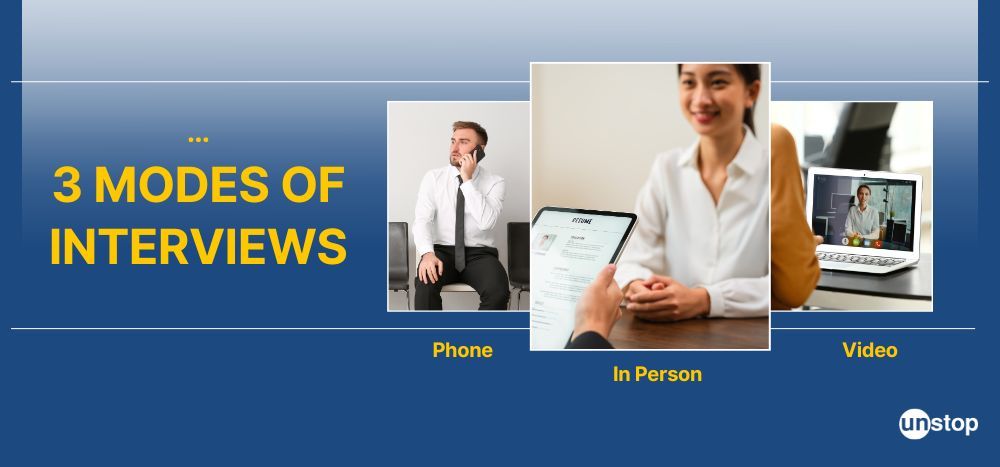
Phone Interview
A phone interview is usually one of the first interview rounds. This is where you will speak to a recruiter who will ask you some basic questions about yourself. They will then decide if they want to meet you in person for a face-to-face interview. If they like what they see, they may offer you a role. It lasts for about 20-30 minutes. It can be semi-structured, with a few fixed questions.
Tip: When candidates have a phone interview with the hiring manager, they should keep a copy of their CV handy. They should have gone through it thoroughly to answer any questions.
Video interview
Video interviews, also known as online interviews, are a type of job interview that is conducted remotely using video conferencing technology. Instead of meeting face-to-face, the interviewer and interviewee interact through a video call. Video interviews are beneficial as candidates can interview without undertaking long commutes. However, they require a stable internet connection.
Find out expert tips to ace this type of interview, i.e. a video interview.
Face-to-face interviews
A face-to-face interview is where the interviewer meets you in person. It’s usually conducted at the workplace, but it could take place anywhere if you’re moving around a lot. The interviewer will ask you questions about yourself and your experience, and then they’ll decide whether or not to offer you the job based on your answers.
Types of Interview: By Purpose
Technical Interview
A technical interview is a type of job interview that focuses on assessing a candidate's technical skills and knowledge in a specific field or industry. It is commonly used to evaluate the candidate's ability to solve complex technical problems, think critically, and apply their knowledge to practical scenarios.
Technical interviews often involve questions and tasks that require the candidate to demonstrate their understanding of programming languages, algorithms, data structures, system design, and other technical concepts relevant to the job position. The purpose of a technical interview is to determine if the candidate has the necessary technical expertise and problem-solving abilities to perform well in the role they are being considered for.
Behavioral Interview
Behavioral interviews are popular in companies because employees have to interact with their colleagues regularly. These interviews are usually conducted along with the technical interview.
In behavioral interviews, the interviewer asks you questions about your personality. Behavioral questions allow companies to see if you are suited to working within a specific role. These questions will usually focus on your communication skills, problem-solving skills, etc.
They want to see if you fit into the culture of the organization. Behavioral interviews are usually conducted face-to-face and last about 40-60 minutes.
Read for top behavioral interview questions: Popular Behavioral Interview Questions With Answers
Situational Interview
In the list of types of interviews, we also have situational interviewing. These unstructured interviews are used to determine whether you would be a good fit for a particular role within the organization. The hiring managers provide the candidate with a hypothetical job situation. The candidates have to describe what would they do in such circumstances.
These interviews typically last longer than usual interviews. Sometimes, situational interviews can be difficult because they require you to think on your feet.
Stress interview
A stress interview is one where you’re asked to perform a task under pressure. This could include taking a test, giving a presentation, or completing a project within a certain timeframe. The candidates are also met with constant interruptions.
The interviewer will want to see if you can handle the difficult situation well enough. A stress interview highlights your weaknesses. Additionally, it allows the candidates to make an informed decision about whether they want to work for an organization where work pressure is very high.
Check out some of the interview questions to ace stress interviews: Top 35 Interview Questions For Freshers With Answers
Case Interview
A case interview is one where you will be asked to solve a problem based on information provided by the interviewer. This type of interview is usually used by companies who want to test your ability to think critically and apply the domain knowledge to real-world situations. Companies can also conduct business simulations if hiring for specialized roles or senior positions.
Competency-based Interview
A competency-based interview is one where the interviewer asks questions based on your skills and abilities. This type of interview is most common in entry-level positions. It’s usually conducted face-to-face but can also take place over the phone or online. Alternatively, organizations may also conduct a competency assessment. For example, undertaking aptitude tests or completing a coding challenge.
Informal Interview
An informal interview is typically conducted at the start of the hiring process. It gives the employer a chance to get to know you better before scheduling a formal interview. The interviewer will ask you some general questions about yourself, your interests, and any relevant experience. This type of interview is usually short and conducted over a phone call. However, it can give you a feel for whether this particular organization would be a good fit for you.
Informational Interview
Another type of interview is called informational interviews. An informational interview is one where you talk to someone who has experience in your field but isn’t looking for new employee skills.
In informational interview rounds, the candidates are given the option to ask questions from the subject matter experts or the industry experts. It is an opportunity for the candidate to understand real-life problems of the related field. This type of interview is often done at conferences or industry events.
Informational interviews also allow candidates to understand the company for which they are interviewing. Along with this, it is a wonderful way of networking.
Other Common Types of Interview
Apart from the aforementioned interview types, there can be certain other interviews too:
Panel Interview
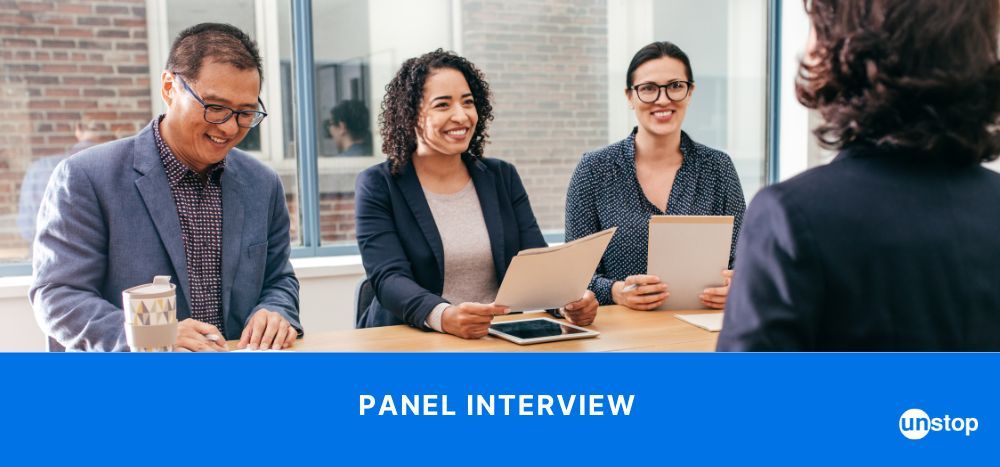
A panel interview is one of the most common types of interview. It is also called a committee interview, involving more than one interviewer. A panel interview is often used by companies looking to hire new employees.
Structured interview panels involve a panel of interviewers taking turns to ask questions. It’s a structured conversation between two people who ask each other questions. The interviewers will usually start by asking some general questions about your background and experience. They might then move on to discussing specific skills and abilities they want to see in a candidate.
Panel interview rounds are often used for technical positions where the employer wants to see if candidates can answer difficult questions in stressful situations. Some of the topics in these types of interviews involve data science, coding, and programming languages like C++ and MySQL.
This type of interview process is commonly used by large corporations and government agencies.
Group Interview/Group Discussion
A group interview is a common type of interview where several people meet at one place to discuss a topic together. This format allows the employer to see how they respond to different opinions. It gives them insight into the candidates' communication skills from how they answer the prompt.
It’s important to note that this isn’t always a positive experience for everyone. Some people find group interviews stressful, but it’s not uncommon for individuals who enjoy interacting with others to thrive in a group setting.
These kinds of interviews are taken by organizations that do mass hiring. Group interviews are also a common feature of on-campus recruitment. It shortens the selection process by filtering the candidates.
Mock Interview
The mock interview is a great way to practice answering questions. You can prepare for mock interviews with mentors, friends, or teachers. You can also record yourself answering questions on a video - which can give you valuable feedback on your answers and conduct during an interview.
Job Fair Interview
A job fair interview is one where you meet face-to-face with potential employers at a specific location. It is common practice for recruiters to set up booths at events like trade shows, expos, and conferences. The purpose of this type of interview is to give you a chance to talk to representatives from companies who are hiring.
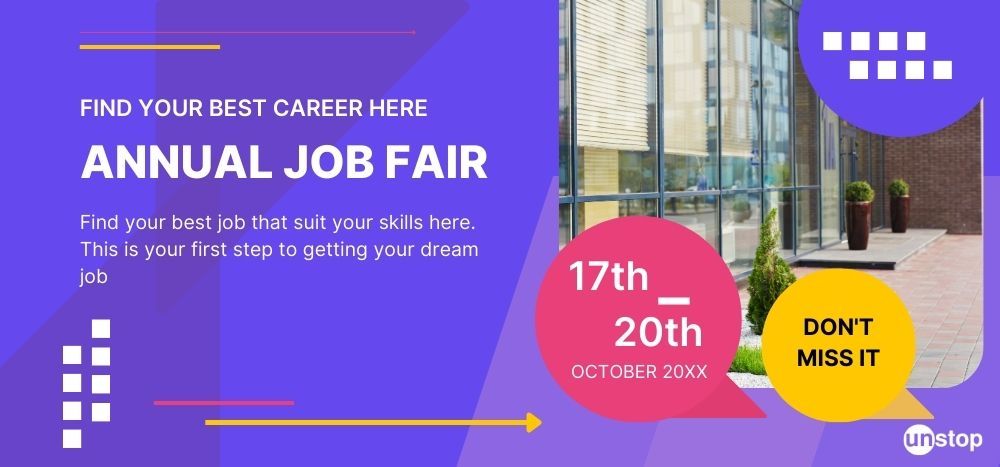
Offsite interview
An offsite interview is one where you meet with the employer at a location away from their office. This type of interview is usually conducted face-to-face. It’s common practice for companies to conduct this kind of interview because it allows them to see if they like working with you before making any commitments. It’s also presumed that this interview type is less stressful than interviews conducted in the office location.
Remember: The type of interview you will encounter depends on the specific job you are applying for and the company's hiring process. It's always good to research the company and the interview process beforehand so you can be prepared.
Tips for preparing for different types of interviews
- Be confident. You should not look nervous during the interview.
- Be polite with the hiring team. Use formal language to engage with them and make proper eye contact.
- If it is an in-person or a video interview, wear professional attire.
- Go through your CV before the interview and be thorough with every detail of it.
- Research the company and job role. You should be clear about what they are looking for.
- Use the STAR method to frame your answers.
- Listen to the questions carefully before answering.
In conclusion, it is important to be well-prepared for different types of interviews. Whether it is a behavioral, technical, or panel interview, understanding the format and practicing common questions can greatly increase your chances of success. Additionally, researching the company and demonstrating your enthusiasm and skills can leave a lasting impression on the interviewer. Good luck!
Frequently Asked Questions
1. What are the different types of interviews?
The most common types of interviews include:
- Behavioral interviews: Focus on past behavior and experiences.
- Phone interviews: Initial screening over the phone.
- Panel interviews: Multiple interviewers asking questions.
- Group interviews: Interviewing multiple candidates at once.
- Technical interviews: Assessing specific skills and knowledge.
2. How should I prepare for a behavioral interview?
To prepare for a behavioral interview, you should:
- Review the job description and identify key competencies.
- Practice answering questions using the STAR method (Situation, Task, Action, Result).
- Prepare examples from your past experiences to demonstrate your skills.
- Research the company culture and values to align your responses accordingly.
3. What should I expect in a technical interview?
In a technical interview, you can expect:
- Coding challenges or technical exercises to test your skills.
- Problem-solving questions to assess your analytical abilities.
- Discussions about your technical projects and experiences.
- Questions about specific programming languages or tools relevant to the role.
4. How should I prepare for different types of interviews?
- Research the company and the specific interview format (phone, video, etc.).
- Practice answering common interview questions using the STAR method (Situation, Task, Action, Result).
- Prepare your own questions to ask the interviewer about the role and company.
- Dress professionally and arrive on time.
5. What should I wear to an interview?
Dress professionally, even for virtual interviews. It's better to be overdressed than underdressed.
6. What should I bring to an interview?
Bring your resume, a portfolio (if relevant), a list of references (if requested), and a notepad and pen to take notes.
7. What should I not do in an interview?
- Don't speak negatively about past employers or colleagues.
- Don't appear unprepared or disinterested in the position.
- Don't ask questions about salary or benefits until later in the interview process.
8. What should I do after the interview?
Send a thank-you email to the interviewer(s) within 24 hours of the interview.
You may also like to read:
I’m a reader first and a writer second, constantly diving into the world of content. If I’m not writing or reading, I like watching movies and dreaming of a life by the beach.
Login to continue reading
And access exclusive content, personalized recommendations, and career-boosting opportunities.
Subscribe
to our newsletter
Blogs you need to hog!
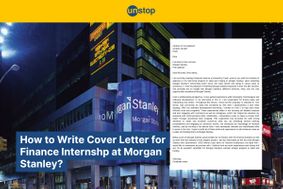
How To Write Finance Cover Letter For Morgan Stanley (+Free Sample!)
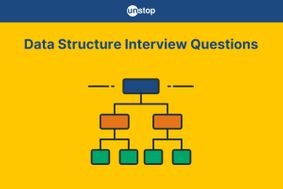
55+ Data Structure Interview Questions For 2026 (Detailed Answers)

How To Negotiate Salary With HR: Tips And Insider Advice
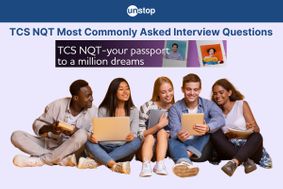










Comments
Add comment